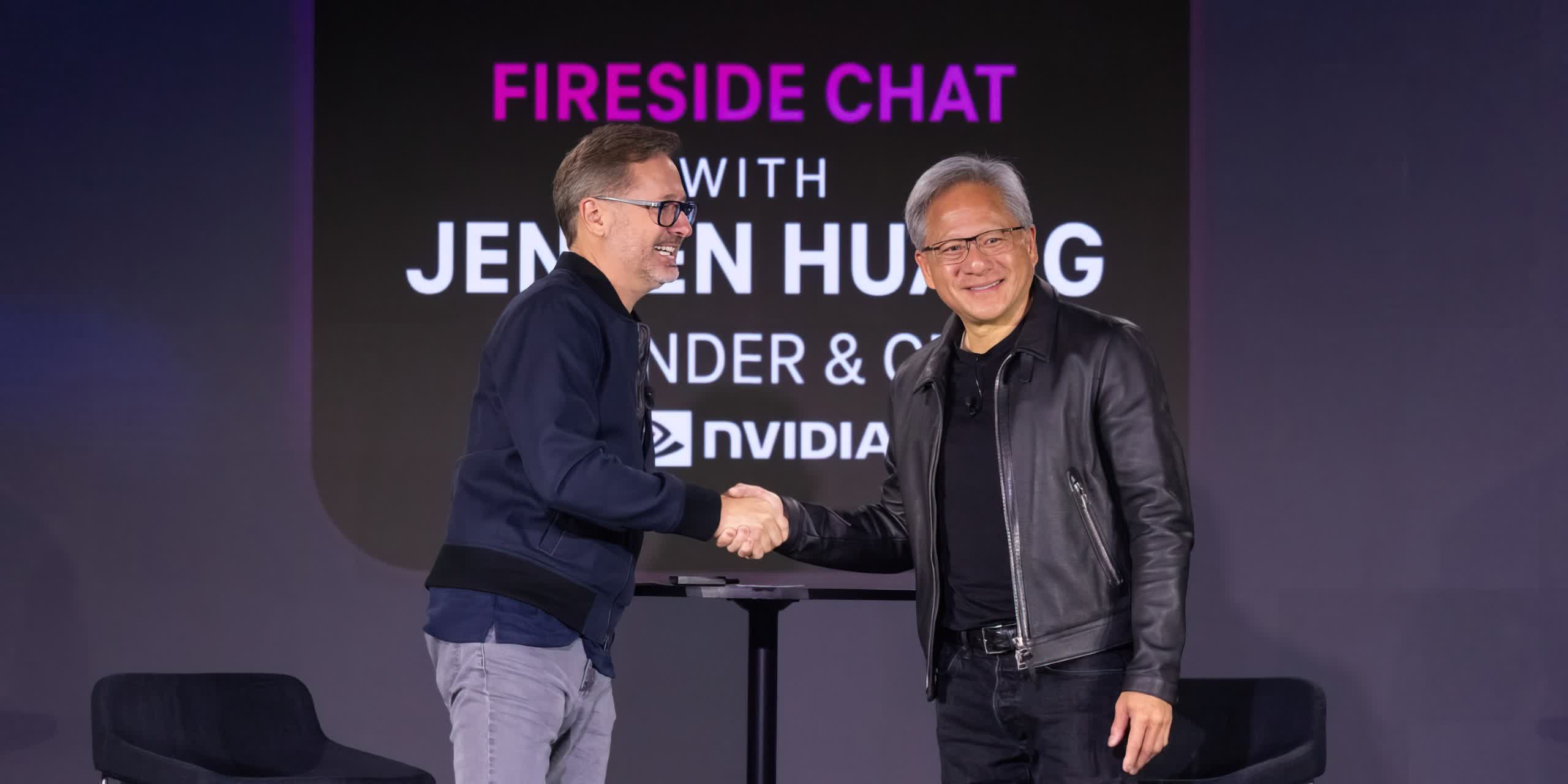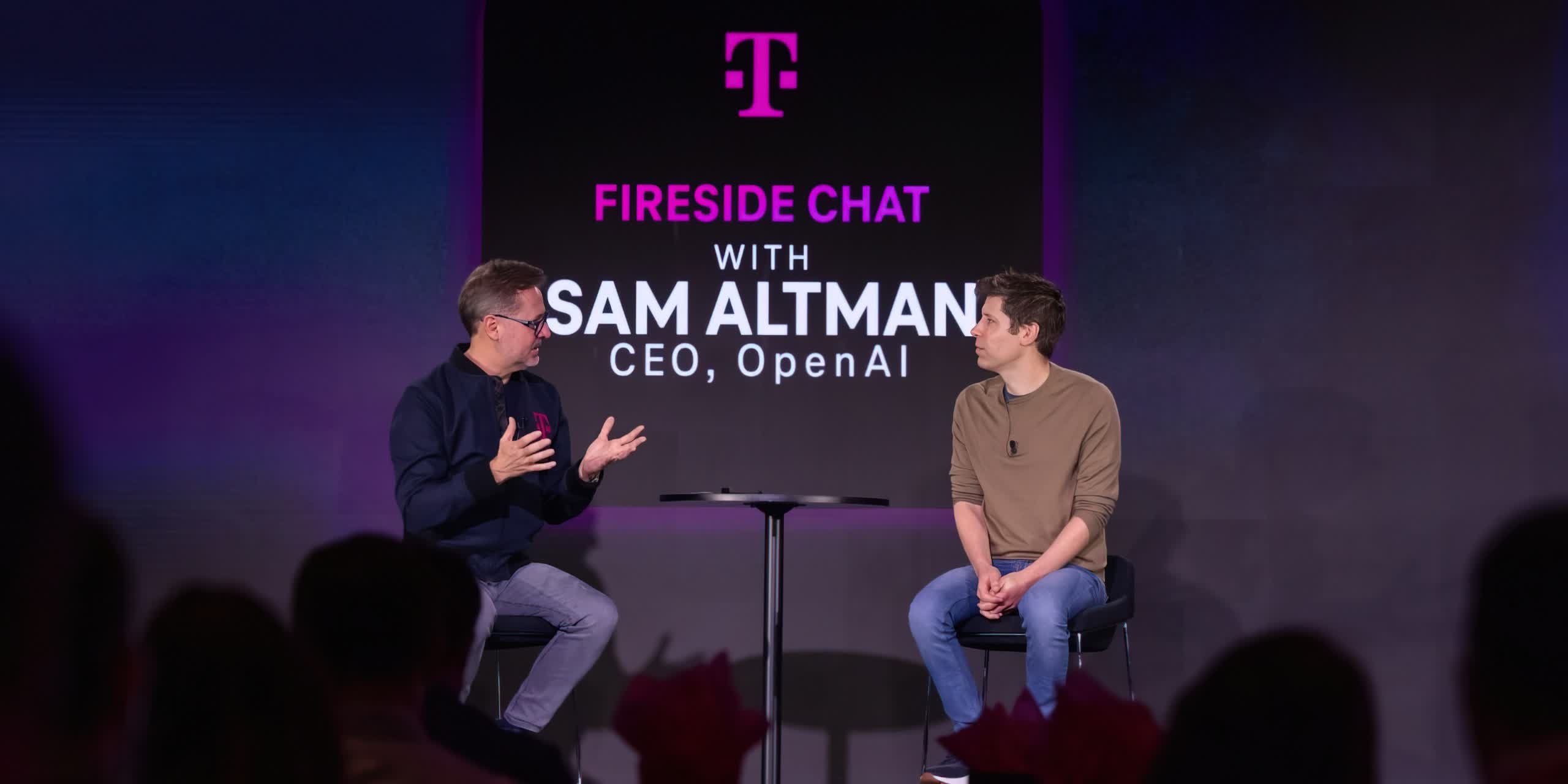Serving tech enthusiasts for over 25 years.
TechSpot means tech analysis and advice you can trust.
The big picture: It hasn't been the easiest time for 5G. The technology that was supposed to revolutionize our world hasn't quite met its lofty expectations. Instead, we've seen modest improvements in mobile download speeds and a new way to access broadband internet. Nice to have, to be sure, but far less than the overhyped predictions.
T-Mobile recently hosted the company's Capital Markets Day, where they displayed a respectable effort to reignite excitement around 5G and what it can do to enhance both our personal and professional lives. The company made it clear that it intends to stay ahead of the latest technological advancements to solidify its position as the technology leader among major service providers. Not surprisingly, much of its focus is on AI.
What was surprising, though, were the kinds of initiatives the company is pursuing and the partnerships it's forming for these AI efforts.
Both OpenAI CEO Sam Altman and Nvidia CEO Jensen Huang joined T-Mobile CEO Mike Sievert onstage (separately) to discuss these intriguing new projects.

The partnership with OpenAI involves a new customer service platform T-Mobile is developing called Intent:CX, scheduled for release next year. Described as an "intent-driven AI decisioning platform," Intent:CX uses OpenAI's platform and GPT foundation models to analyze T-Mobile's massive cache of customer usage data for insights.
While this sounds similar to other GenAI-powered customer service solutions, T-Mobile claims Intent:CX will utilize OpenAI's latest reasoning-based models (like the new o1) to go beyond typical support capabilities and enable autonomous actions. The goal is not only to provide better and more personalized support, but also to make suggestions or perform automated actions on the customer's behalf. T-Mobile believes this could reduce support calls by 75%, while simultaneously improving support quality – a bold target.
From a business perspective, T-Mobile expects this to reduce the need for support personnel, third-party call centers, and retail stores while still improving customer satisfaction and retention. If successful, this would be a prime example of the cost-saving potential of AI, a topic many companies are discussing. However, considering how notoriously bad customer support often is for service providers, achieving this will be no easy feat.

There are also questions about how willing customers will be to accept AI-powered support, even with human involvement. If the service is delivered seamlessly without most customers noticing, the impact could be quite positive. T-Mobile even suggested its work could serve as a blueprint for other industries with large customer support operations looking to leverage AI.
The partnership with Nvidia, which also involves network infrastructure vendors Ericsson and Nokia, focuses on creating an AI RAN Innovation Center at T-Mobile's headquarters in Bellevue, WA. This facility will feature a supercomputer equipped with Nvidia GPUs running Nvidia's Aerial software, connected to Ericsson and Nokia network equipment. The center will explore how AI can enhance T-Mobile's RAN (Radio Access Network).
Nvidia's Aerial software has two key functions: improving RAN performance, which is central to all mobile networks, and running AI workloads – both RAN-related and entirely separate – from within those mobile networks. Paired with Ericsson and Nokia hardware, the Aerial platform aims to help telcos like T-Mobile optimize network traffic, improving speed, capacity, and efficiency at a lower cost per bit. This optimization is a big win for carriers.
But this Nvidia tech has been around for several years now. In fact, I first wrote about it in June 2021 (see "Nvidia's Aerial Brings GPUs to AI on 5G"). From those early days, it's always been an intriguing and potentially impactful technology for two reasons. First, any efforts at optimizing and improving RAN performance lets mobile carriers like T-Mobile improve the speed, capacity, and efficiency of their networks, letting them carry more signals at a lower cost per bit. By training AI models about how the radio signals are propagated and feeding it a continuous real-time stream of data from the network, Aerial can automatically optimize network traffic for the best possible throughput. That's a big win for network carriers like T-Mobile.
Second, while mobile carriers have long talked about their desire to bring more computing capabilities into their network and avoid being little more than dumb pipes, their real-world success on this front has been limited. By integrating GPU computing capabilities into their networks, however – and essentially becoming AI-as-a-service providers – that's a much more compelling story for telco operators to tell. It also presents a more realistic potential for T-Mobile to generate new revenues from these "smart pipes."
The problem, up until now, has been that Nvidia hasn't been able to convince any of the major US or European carriers to make the significant investment required to integrate Aerial technology into their networks. However, with this new announcement, it's clear that is about to change. While T-Mobile hasn't provided an official timeline for moving the technology from the lab to full deployment across its network, the path forward has been outlined, and the expectation is that we'll begin seeing some of these benefits starting next year.
While this in-network AI computing news is important on its own, it's even more interesting when viewed in the context of last week's big announcement from Ericsson along with many of the world's largest mobile network providers, including T-Mobile, Verizon, AT&T, and many more (see my latest Forbes article entitled "Ericsson and Telcos Bringing Intelligence to Mobile Networks" for more details).
In case you missed it, the main takeaway is that after years of discussing how to make networks an intelligent resource for mobile developers, similar to computing and storage, the telco industry's biggest players are finally taking action. By leveraging the GSMA's Open Gateway initiative and the CAMARA open-source network APIs, Ericsson managed to bring together major mobile providers from around the world to support a new joint venture (name still TBD) aimed at creating, supporting, and monetizing a global suite of network APIs.
Together with T-Mobile's recent announcements, this suggests that a company like T-Mobile could eventually offer both the APIs and the computing infrastructure necessary to run them within its network, creating exciting new revenue opportunities. While many details still need to be ironed out to make this a reality, it's clear that, after a period of relatively few interesting developments, T-Mobile and its partners are working to inject some excitement back into the world of 5G.
Bob O'Donnell is the president and chief analyst of TECHnalysis Research, LLC, a market research firm that provides strategic consulting and market research services to the technology industry and professional financial community. You can follow Bob on Twitter @bobodtech